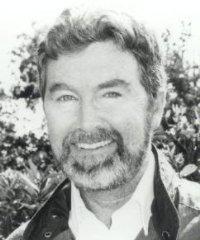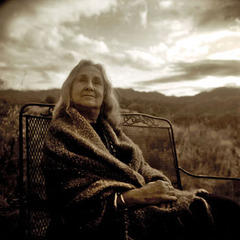Samuel Johnson Quotes - Page 31
The poor and the busy have no leisure for sentimental sorrow.
Samuel Johnson, Hester Lynch Piozzi, James Boswell (1787). “The Beauties of Samuel Johnson, LL.D.: Consisting of Maxims and Observations, Moral, Critical, and Miscellaneous, to which are Now Added, Biographical Anecdotes of the Doctor, Selected from the Late Productions of Mrs. Piozzi, Mr. Boswell, ...”, p.27
Samuel Johnson (1798). “Dr. Johnson's Table Talk: Containing Aphorisms on Literature, Life, and Manners; with Anecdotes of Distinguished Persons, Selected and Arranged from Dr. Boswell's Life of Johnson”, p.394
Samuel Johnson, Arthur Murphy (1837). “The Works of Samuel Johnson, LL. D.: With an Essay on His Life and Genius /c by Arthur Murphy, Esq”, p.548
The best part of every author is in general to be found in his book, I assure you.
James Boswell, Samuel Johnson (1799). “Life of Johnson: Including Boswell's Journal of a Tour to the Hebrides and Johnson's Diary of a Journey Into North Wales”, p.521
Samuel Johnson, James Boswell (1825). “The Table Talk of Dr. Johnson: Comprising Opinions and Anecdotes of Life and Literature, Men, Manners, and Morals”, p.282
James Boswell, Samuel Johnson, Edmond Malone (1824). “The life of Samuel Johnson, LL. D., comprehending an account of his studies, and numerous works, in chronological order: a series of his epistolary correspondence and conversations with many eminent persons; and various original pieces of his composition, never before published; the whole exhibiting a view of literature and literary men in Great Britain, for near half a century during which he flourished”, p.359
In James Boswell 'The Life of Samuel Johnson' (1791) vol. 1, p. 445 (21 July 1763)
Samuel Johnson (1784). “The Rambler: In Four Volumes..”, p.194
Samuel Johnson, Arthur Murphy (1857). “The Works of Samuel Johnson, LL.D.: With an Essay on His Life and Genius”, p.16
Rasselas ch. 10 (1759)
In James Boswell 'The Life of Samuel Johnson' (1791) vol. 4, p. 111 (May 1781)
Samuel Johnson, Arthur Murphy (1825). “The Works of Samuel Johnson, LL.D.: With Murphy's Essay”, p.637
Samuel Johnson (1825). “The Rambler: A Periodical Paper, Published in 1750, 1751, 1752”, p.77
James Boswell, Samuel Johnson (1866). “The Life of Samuel Johnson”, p.87
In James Boswell 'The Life of Samuel Johnson' (1791) vol. 3, p. 283 (14 April 1778)
Quoted in James Boswell, The Life of Samuel Johnson (1791) (entry for 22 June 1776)
The richest author that ever grazed the common of literature.
Dr John Campbell, in James Boswell 'The Life of Samuel Johnson' (1791) vol. 1, p. 418 n. 1 (1 July 1763)
Samuel Johnson, Arthur Murphy (1857). “The Works of Samuel Johnson, LL.D.: With an Essay on His Life and Genius”, p.474
New things are made familiar, and familiar things are made new.
Lives of the English Poets "Pope" (1779 - 1781)
It is man's own fault, it is from want of use, if his mind grows torpid in old age.
James Boswell, Samuel Johnson, Edmond Malone (1824). “The life of Samuel Johnson, LL. D., comprehending an account of his studies, and numerous works, in chronological order: a series of his epistolary correspondence and conversations with many eminent persons; and various original pieces of his composition, never before published; the whole exhibiting a view of literature and literary men in Great Britain, for near half a century during which he flourished”, p.245
Samuel Johnson (1836). “Johnsoniana: Or, Supplement to Boswell: Being Anecdotes and Sayings of Dr. Johnson”
Sir, if a man has a mind to prance, he must study at Christ Church and All Souls.
1769 Remark, Autumn. Quoted in James Boswell The Life of Samuel Johnson (1791), vol.2.
James Boswell, Samuel Johnson, Edmond Malone (1824). “The life of Samuel Johnson, LL. D., comprehending an account of his studies, and numerous works, in chronological order: a series of his epistolary correspondence and conversations with many eminent persons; and various original pieces of his composition, never before published; the whole exhibiting a view of literature and literary men in Great Britain, for near half a century during which he flourished”, p.254
James Boswell, Samuel Johnson (1866). “The Life of Samuel Johnson”, p.162







